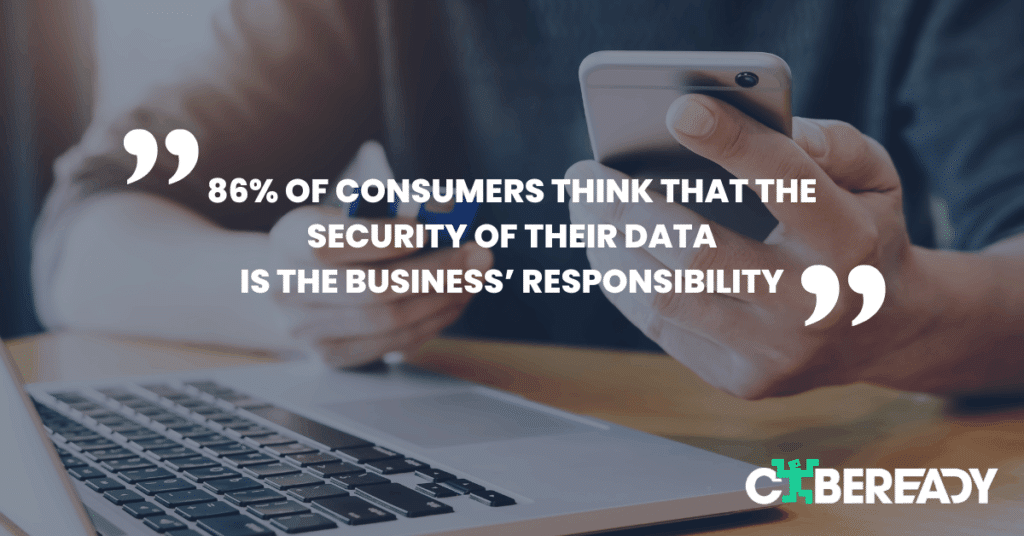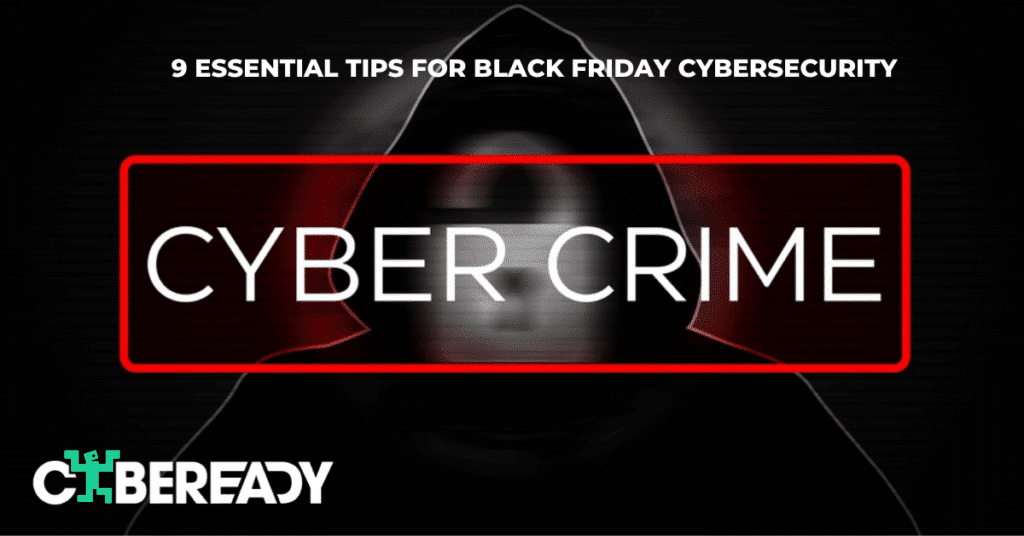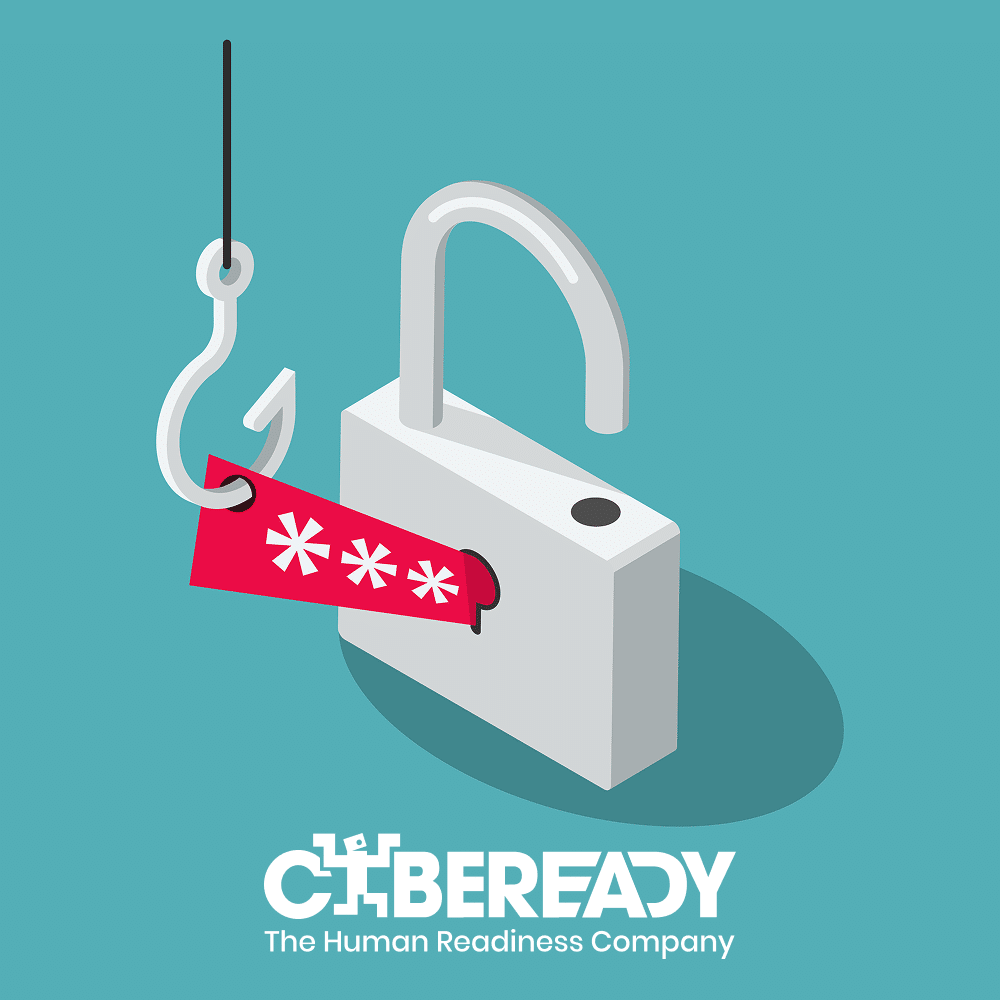Most cybersecurity professionals know all too well that the days from Thanksgiving to Black Friday and Cyber Monday are marked by a serious rise in cyberattacks. Recent findings show they are 127% higher for U.S. digital fraud than during the rest of the calendar year. As people become overwhelmed with deals, offers, shopping, and vacation-related decisions, it can be difficult to spot a malicious message, especially while excitement or fear of missing out takes over. Many users are too busy with bargains on their minds to think about security hygiene, as 42% of shoppers would “gladly buy from an unfamiliar seller” if the price was right.
One-click payments make it easier than ever for shoppers to fall victim, and lures are coming from more directions than ever before, whether email, ads, social media, SMS, and even push notifications.
This year, the threat is greater than ever. Consumer Affairs report that between October 1st and November 1st, 2023, there have been 34,896 Black Friday-related scam URLs in the U.S. alone. Compared with 2022 numbers, this is already an increase of 10%. The National Cyber Security Center has warned shoppers to increase their vigilance this year particularly, as over 70% of individuals worry that AI will make digital fraud and scams much easier for the hackers.
In this article, we share security strategies you can implement to reduce cyber risk and protect both your brand and your customers.

What Are the Key Cyber Risks During Black Friday?
So, with the added level of risk, what should businesses be aware of?
- Phishing: A hacking approach that aims to trick users into sharing sensitive data using malicious links disguised as legitimate-looking communications from a brand. This could be via email, advertising, social media, SMS, or voice.
- Ransomware: Often triggered by employees clicking on a malicious link, this is a form of cyber blackmail that encrypts a company’s data. Ransomware renders that data inaccessible until the company pays a demanded ransom fee.
- Supply Chain Threats: Most online sales require the support of multiple vendors, creating a chain of possible vulnerabilities that criminals can exploit. Every link in your supply chain could open a foothold to your own environment.
- DDoS Attacks: Distributed Denial-of-Service Attacks (DDoS) are attacks intended to disrupt a targeted server, service, or network by overwhelming the target or other surrounding infrastructure with a flood of traffic. These can be launched once attackers gain a foothold.
- E-Skimming: When a user enters their financial information on a checkout page, a type of malware, e-skimming, can hide in online checkout pages to steal customers’ personal information and payment details.
- Verification Code Hacking: Hackers have found a variety of ways around multi-factor security measures. Using phone calls, social engineering, text messages, and other tactics, hackers steal the required time-sensitive codes to bypass security checks and gain access to private information.
Impact of Cyberattacks on Business
There are two sides of the coin when it comes to the cyber risk of Black Friday. First of all, your employees or users could fall victim to a phishing scam, which opens your company network up to a potential data breach or attack.
The other element to be aware of is if your brand is used as a victim in a phishing scam. Many people think that cyber-attacks only target enterprise companies. However, in reality, the Better Business Bureau warns that identity hijacking and brand damage are some of the top 10 threats against small businesses and that when a small business loses its reputation through this kind of bad press – it often does not recover.
Whichever way your business gets damaged by Black Friday cybercrime, most small businesses cannot handle an attack’s fallout. That’s why we’ve gathered 9 essential tips that can keep you and your business secure this holiday season.

9 Essential Tips for Black Friday Cybersecurity
1. Analyze Your Cyber Risks
Do a thorough rundown of areas that could be at potential risk. Searching for vulnerabilities using a cyber risk assessment framework allows you to identify and fix any security holes and implement new security protocols before damage can be done. For example, you can ensure your payment process meets PCI DSS compliance to make it less likely your checkout page can be manipulated, and upgrade your SSL certificates to give shoppers confidence when visiting your site.
2. Create a Cybersecurity Plan for Black Friday
A plan for Black Friday cybersecurity can involve multiple approaches. Work with your marketing and security teams to implement processes that prevent cyberattacks. Tactics like early bird deals or custom site designs for Black Friday can make it more difficult for criminals to impersonate you and fool your customers. Build a plan with your security team about areas to monitor and what the protocol is if an attack has been discovered. Prevention is key, so having a plan in place can save you valuable time and money.
3. Utilize Automated Data Security and Compliance
Automated data security and compliance services scan your network and notify you in real-time of any suspicious activity, allowing you to act before any damage is done. The concept of automated security and compliance checks can also apply to employee training. Using an automated solution that conducts, monitors, and reports on employee cybersecurity training can help you ensure your employees are always up-to-date on cybersecurity best practices.
4. Update All Your Web Apps and Plugins
Old applications can be more vulnerable to attacks on Black Friday. Black Friday preparations can lead your tech teams to be more focused on ensuring your app can handle the upcoming surge in demand rather than on cybersecurity measures. Combined with the fact many shoppers will be using or updating apps they haven’t used in months, old apps and plugins can provide hackers with easy access to sensitive information if they haven’t been secured. Updating your apps and plugins can prevent hackers from taking advantage of these vulnerabilities.
5. Avoid Clicking on Links
Speak to employees about smart security hygiene when taking advantage of deals. Tell them to avoid links from an email, an advert, or an SMS, and instead to always enter the URL directly themselves into their browser. It’s best practice to use the company app from their personal smartphone, and always be wary if they are asked to download a new app from a known vendor, rather than an update.
6. Train Your Employees
A vast majority of cyberattacks involve human error, so training your employees in security awareness is imperative. Cybersecurity awareness training teaches your employees security best practices, how to spot a malicious phishing attempt, and what to do if they’ve found something suspicious. One great tip to give employees is to check for the lock symbol next to a website’s URL, which will show that the site has a secure SSL certificate. They should also use a third-party payment method that doesn’t transmit credit card information to sellers (like PayPal or Venmo).
7. Encourage Staff to Shop on Personal Devices
Many people have a work phone or a work laptop that they also use for recreation and leisure, especially in today’s WFH environment. However, if your employees are using company devices to do their online Black Friday shopping, they’re exposing your network to risks. They could click on a bad link, not recognize a suspicious email attachment, or fall victim to other attacks that could be disastrous for your company. Encourage them to shop from their personal devices rather than from a company device or network.
8. Monitor, Monitor, Monitor
Monitor everything you can think to monitor. Your servers, website traffic, social media mentions, and anywhere else that could tip you off that something might not be right so that you can act as soon as possible. This is where a good automated monitoring tool can come in handy – by doing all of the monitoring work for you and alerting you when something suspicious is detected.
9. Remain Vigilant After the Sale
Once a sale is complete, that shouldn’t be the end of user awareness. If an email comes through from the vendor to check delivery times or offer a reward for your custom, this could easily be a phishing scam. After all, it’s much more likely to break through your defenses if you have shopped with that brand recently. That’s why vendors like Apple and Amazon with such a high volume of daily orders were the most common targets in 2022 for phishing scams. Warn employees to visit the website directly for updates, to beware of fake tracking numbers or order confirmations, and to keep an eye on their account for any unauthorized transactions until they are sure the order is legitimate.
How Your Team Can Overcome Black Friday Cybersecurity Threats
The Black Friday deal no one bargained for is a cyberattack that led to their data being breached, or their reputation being ruined. While consumers can take steps to protect themselves, businesses must also take proactive steps to protect not only their customers but their business and employees as well.
The first line of defense is your people. That’s why cybersecurity awareness training is vital for any organization taking security seriously.
With CybeReady’s autonomous training platform, your employees receive continuous, thorough, and engaging training that reinforces learning and gives them the skills they need to detect and mitigate attacks or data breaches during this popular shopping holiday.
Discover how CybeReady can protect your business from cybercrimes over Black Friday.
















